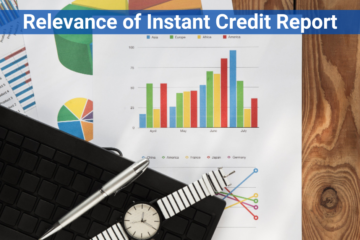How to avoid bad credit?
To avoid bad credit is more straightforward than getting credit repair in the future. There are many ways to maintain your credit score, and making the wise decision ahead of time is the ultimate solution to maintaining good credit. Before you apply for a loan, you must plan your finances in advance. Will I afford the monthly payment? Do I have enough income to cover the other bills? Consider asking yourself these types of questions before going for a loan.
After applying and you got approved, that’s where you start to maintain your credit score. The question is, how will you maintain your credit score at its best condition?
Here’s how;
1. Stay in touch with your monthly payments.
Once you’re done with your application and approved, ensure that you keep track of your monthly payments. Missing you due can drop your credit score drastically.
2. Keep yourself organized when your payments are due.
It is advisable to get yourself a budget planner. That way, you are organized with all your bills, and you can easily keep track of your monthly spending.
3. Do research.
Explore the marketplace before coming to your purchasing decision. That way, you are knowledgeable about the terms you are going for. This will help you avoid bad credit in the future as well.
These are some advice we can give to avoid bad credit. We all start with a clean slate, and your decision after getting your first loan will determine whether you go towards good credit or bad credit.
Here are some ways to make sure your credit score is healthy.
1. Pay your monthly bills on time.
This has the most impact on your credit score. As I’ve said, missed or late payments can drop your score by several points.
2. Know which bills to report to the credit bureau.
There are instances when you need to skip a bill when the budget is tight. Knowing what bills will be reported on bureaus is essential to know what bills you should prioritize when you have a tight budget and which bills will significantly affect your credit score.
3. Take only a little debt.
More debt means more payments. If you are still determining if you can afford these debts, you better be responsible when taking out debt.
4. Manage your income nicely.
Not handling your income well may sort to bad credit as well. If you make a budget plan, follow it strictly and don’t make unnecessary changes. That way, you can track your payments and maintain your credit score.
5. Think before getting new expenses.
Take a look at your budget plan; if you have any, ask yourself if you can afford this new expense. Is there a lot of extra on your budget to cover this new bill? Always think before adding a new expense to your list.
6. Recognize when you’re having trouble.
If you are experiencing trouble with your finances, do not use credit cards. Instead, look where you can cut your expenses. You can also find a second or part-time job to meet ends. There are many ways to cover your bills, and resorting to another debt to cover a debt will not work out.
7. Build healthy savings.
Extra money for emergencies is always the best decision you can make. Setting money aside when you have extra is a good thing. You can always use this money whenever you are short on your finances.
These are just ways to avoid bad credit. Hiring for credit clean-up services can be a hassle and, most importantly, costly. So maintaining a good credit score is always better, and you’ll be able to avoid extra fees.
If you want to avoid bad credit, you want to stay on the right path. The loan is an agreement between two parties, and attached are interest rates and other fees. If you are applying for a loan and want to avoid bad credit, it makes sense that you know the fees and how much it will cost you.
As much as possible, avoid loans that are high in interest. This is why exploring the marketplace before applying for a loan is essential. Look for loans that are low in interest.
In conclusion:
Avoiding a bad credit score is easy when you know how to be responsible with your income, and you know how to budget wisely. It is also essential that you know all the basics when it comes to your loans. How much are you paying for the interest, and how much will go to the principal. That way, you can determine how long you can finish your loan.
Much fast credit repair is willing to help you when you want to rebuild your credit report. However, remember that it is better to maintain your credit score the moment your credit starts than have a hard time fixing it later.




